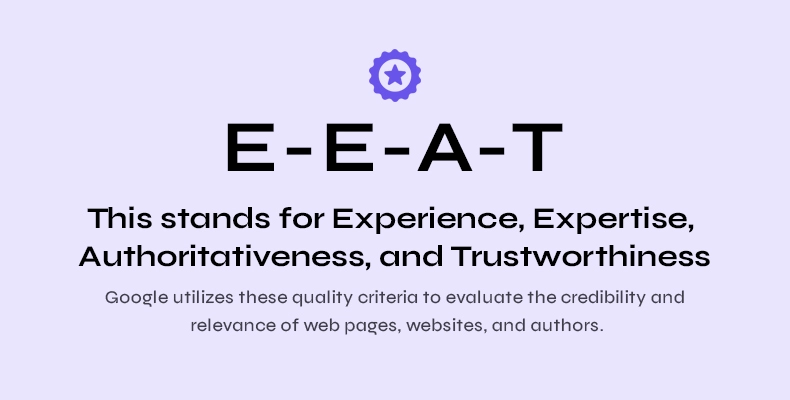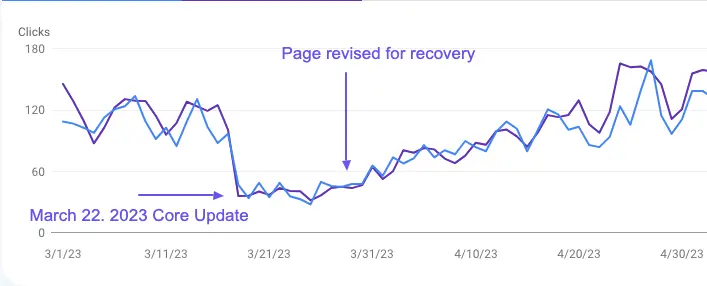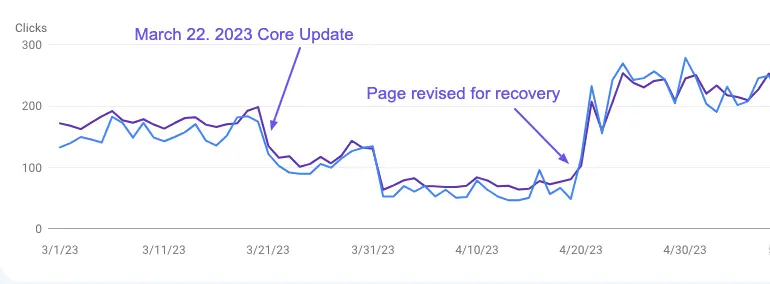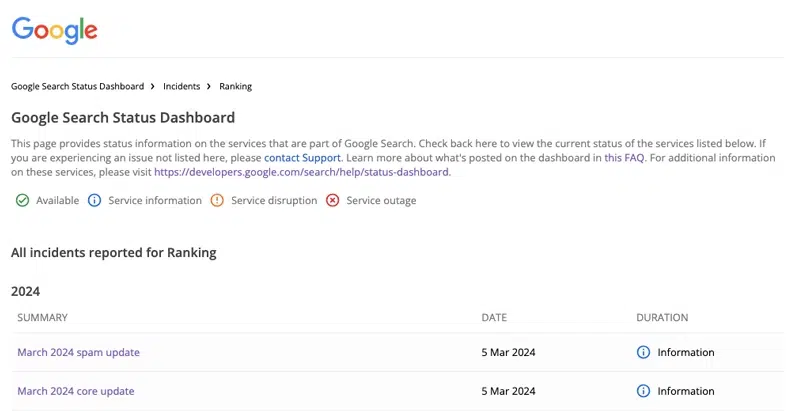Understanding the evolution of Google’s Algorithm is crucial for those navigating the constantly changing world of SEO. Google has continuously improved its algorithms to deliver users the most relevant search results. Examining the history of these updates provides valuable insights into the development of SEO. Google’s algorithm has undergone significant changes from the early days of PageRank to recent advancements like RankBrain and BERT. Each update introduces modifications that can impact website rankings and visibility. Businesses and marketers need to stay informed about these algorithm updates and adjust their SEO strategies accordingly. By staying current with algorithm changes, websites can remain competitive, maintain their search rankings, and effectively connect with their target audience.
Understanding Google's algorithm
Understanding Google’s Algorithm is crucial, as it forms the backbone of how websites are ranked in search engine results. The algorithm is an intricate system that considers multiple factors to evaluate the relevance and authority of web pages.
At its core, Google’s Algorithm consists of several key components. These components include:
Monitoring algorithm updates
Monitoring Google Algorithm Updates is essential for staying informed about changes that may impact website rankings and visibility in search engine results. One valuable resource for monitoring these updates is the Google Search Status Dashboard, which provides real-time information on the status of Google Search systems and services, including any ongoing or recent algorithm updates.
The Google Search Status Dashboard offers transparency regarding the health and performance of Google’s search infrastructure and any incidents or disruptions that may affect search results. By regularly checking the dashboard, website owners and SEO professionals can stay updated on any algorithm updates or changes that may be occurring.
In addition to the Google Search Status Dashboard, various other tools and resources are available for monitoring algorithm updates. These include industry news websites, SEO blogs, and forums where professionals discuss and analyze changes in search engine algorithms.
Monitoring algorithm updates allows website owners and SEO professionals to proactively adjust their strategies in response to changes that may impact their rankings. By staying informed and adapting quickly to algorithm updates, businesses can maintain their competitive edge and ensure their websites continue to perform well in search engine results.
8 strategies for adapting to algorithm updates
1. Content optimization
High-quality, relevant content is a cornerstone of effective SEO. To adapt to algorithm changes, focus on creating content that meets users’ search intent and provides value. Perform keyword research to find relevant topics and seamlessly integrate target keywords into your content. Also, focus on user engagement metrics like dwell time and bounce rate to show search engines the value of your content to users.
2. Technical SEO adjustments
Ensure your website is optimized for technical SEO factors such as mobile-friendliness, page speed, and structured data markup. Given that mobile devices make up a substantial portion of internet traffic, prioritizing mobile optimization is crucial for maintaining or enhancing search rankings. Additionally, incorporating structured data markup can boost your website’s visibility in search results by offering search engines more information about your content.
3. Backlink profile management
Evaluate your website’s backlink profile to ensure it consists of high-quality, relevant links from authoritative websites. Disavow any harmful or spammy backlinks that may negatively impact your website’s credibility and rankings. Building a solid backlink profile through ethical link-building practices can help improve your website’s authority and visibility in search results.
4. User experience enhancement
Prioritize user experience (UX) by improving website navigation, accessibility, and overall usability. Optimize your website’s design and layout to make it easy for users to find the information they’re looking for. Enhance page loading speed, minimize intrusive interstitials, and ensure accessibility for users with disabilities. Positive UX signals can positively impact your website’s search rankings and user engagement metrics.
5. Analyzing competitors' strategies
6. Adherence to E-A-T-T principles

7. Ethical and compliant practices
Adhere to Google’s search essentials guidelines and avoid using black hat SEO tactics that may result in penalties or deindexing. Concentrate on developing a long-term SEO strategy that emphasizes delivering value to users and adhering to industry best practices.
8. Refresh or update existing content
Google algorithm recovery case studies
Following most major core updates, the mental health and addiction treatment sector tends to take a hit. If you’ve noticed a drop in keywords or traffic after a recent Google algorithm update, it’s crucial to take a closer look at the web pages now ranking on the first page and see what they’re doing differently from you. Dive into your content to see if there are any areas where you can provide more valuable information to users. Double-check your on-page SEO to ensure it meets the required standards. Our research indicates that recovering keywords and organic traffic is achievable with excellent results. Check out just a couple of our recovery case studies for more insight.


Does your website need help recovering from recent algorithm updates?
Navigating Google’s algorithm updates is an ongoing journey that requires vigilance, adaptability, and strategic planning. By understanding the core components of Google’s algorithm, monitoring updates through reliable sources like the Google Search Status Dashboard, and implementing effective strategies for adaptation, businesses and marketers can remain at the forefront and uphold their competitive advantage in the ever-changing realm of SEO.
At Huely Inc., we specialize in helping businesses stay ahead of the curve by crafting tailored SEO strategies that withstand algorithm changes and drive sustainable growth. Contact us to grow your online presence and thrive in the dynamic world of search engine optimization.
FAQs
Some common mistakes to avoid during algorithm changes include:
- Keyword stuffing
- Low-quality content
- Excessive use of ads
- Unnatural link building practices
Focusing on creating high-quality, user-focused content and adhering to Google’s Webmaster Guidelines is essential to avoid penalties and maintain or improve your website’s rankings.
Core Google algorithm updates are important changes to ranking search results. These updates can affect where websites appear in search results and how much traffic they get. Website owners and SEO professionals need to monitor their website’s performance after a core update and change their strategies if required. Overall, core updates help Google provide better search results to users.






